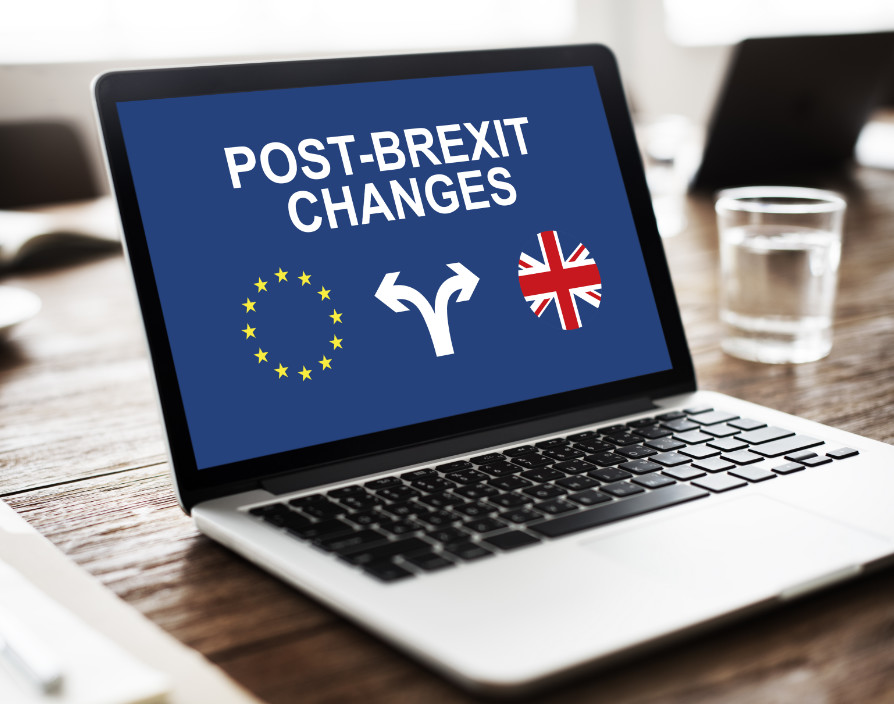Daniel Baker, managing director at Origin a leading UK manufacturer, explores the key lessons learnt for British businesses following the Brexit deadline on 31st December.
Dealing with the short-term impact of Brexit
Following the last-minute trade deal in December, businesses across Britain have spent the last two months coming to terms with life post-Brexit and adjusting their processes accordingly.
For Origin, like many businesses, this has involved planning, adapting, and improvising in equal measure. As we import some of the parts used to make our doors and windows from the EU, our primary short-term concern following the deal was access to these materials. In anticipation of this, we had plans in place for a host of possible scenarios and have spent time since January implementing those that are relevant to the situation that we have found ourselves in.
Despite this extensive planning, we have also had to quickly adapt and improvise for the impacts of Brexit that we hadn’t expected, including the shortages of trucks and hauliers to transport goods across the border and into Britain. This has proven challenging at times and demonstrates that no matter how prepared you are, you can never anticipate all eventualities, something that the pandemic has also been effective in reminding us.
Key learnings
Although there have been many lessons learnt over the past two months following the Brexit deadline, I do believe that our experiences of the pandemic taught us a lot and helped many businesses to prepare for the uncertainties that Brexit had in store. At Origin, it encouraged us to invest more heavily in stockpiling raw materials and parts to help us weather disruption in the supply chain and continue to deliver to our customers on time and in full. We needed to keep supporting our customers to ensure they never miss an install day, so the investment was a no brainer. This was a practice that also proved vital in allowing us to continue operating during the chaotic first few weeks following Brexit.
However, our departure from the EU did, of course, have unexpected implications. Particularly in the first weeks following Brexit, we noticed a general hesitancy amongst our EU suppliers to familiarise themselves with the vast number of new administrative requirements that the deal demanded of us all. This was unexpected – it inevitably slowed the process and exasperated the delays we were already experiencing when it came to importing parts. In addition, many hadn’t foreseen the host of additional paperwork required by sellers who began supplying through intermediaries, which resulted in more lost time that hadn’t been accounted for. These administrative issues caused a huge amount of pain for many businesses, both in the UK and the EU, at the time. This did, however, mean that organisations were very quick to adapt and learn in order to stamp out the problem as quickly as possible. We can already see the results of this as the queues at the borders begin to reduce.
The immediate and severe shortage of containers and hauliers also came as a surprise for many businesses and meant that organisations had to adapt quickly to avoid major disruption to their importing and exporting activity. For Origin, this meant paying premium rates for transport in the short-term to ensure stock and parts arrived with us in time. We also developed plans to book our own transport, or even hire trucks and send our own team across the border, should this be required.
In addition, whilst the buffer of stock we had built to help us weather COVID-19 and Brexit disruption proved vital in minimising the damage caused by these delays, another key learning has been that you can never be too prepared, and if I were to rewind to 2020, I would build an even bigger safeguard. Like many companies, Origin forecasted border delays as one of the many potential side-effects of Brexit, but no one knew if it would actually happen. Fortunately, we felt relatively prepared for this eventuality when it did happen, but I would have liked an even more substantial cushion in place to reduce the pressure and stress on the business during those early days.
Advice for the months ahead
My advice to other businesses who import and export from the EU, particularly those who may not have felt entirely prepared for the deal we ended up with, is to learn everything there is to know, as soon as possible. Ensure you study every element of the deal that is relevant to your business, from new customs rules, through to your staff’s right to work, should you employ any EU citizens. It will be important for your whole workforce to understand the new requirements, so be sure to invest in staff training for the entire team, not just senior leadership figures. There is a huge amount of advice and support out there for those who need it, including specialists and consultancies who can work with you and your team to ensure you have the depth of understanding you need to navigate international business moving forwards.
Once you have the necessary knowledge, take responsibility for coaching all of your suppliers to ensure that they have an equally good understanding of the new legislation and what is required of them, ranging from documentation through to pallet markings and everything in between. This is vital for preventing against delays in the supply chain, both now and further down the line, but is so easily overlooked when companies are focussed on readying themselves for the new normal.
The process of working with your suppliers to ensure they have a solid understanding of the new requirements should also help you identify any potential weaknesses that could lead to future delays. Once this is done, focus on stocking up on the products from those suppliers that you anticipate could cause delays in the future to ensure your organisation is protected against this.
My final piece of advice, and perhaps the most important one of all, is to continue to maintain a buffer of stock for some time if you are able to. The initial delays caused by Brexit may be easing, but the challenges surrounding importing and exporting from the EU are certainly not over for good as we continue to face COVID-19 laws, travel restrictions and vaccination disparities. Of course, there are some businesses that simply cannot stockpile, for example, fashion brands whose stock becomes obsolete quickly. However, if you have a stable range of products and funds available, investing in a buffer of stock that can act as a safety net is the very best way to ensure your business is prepared to weather future unanticipated challenges.
“
Share via:


















































